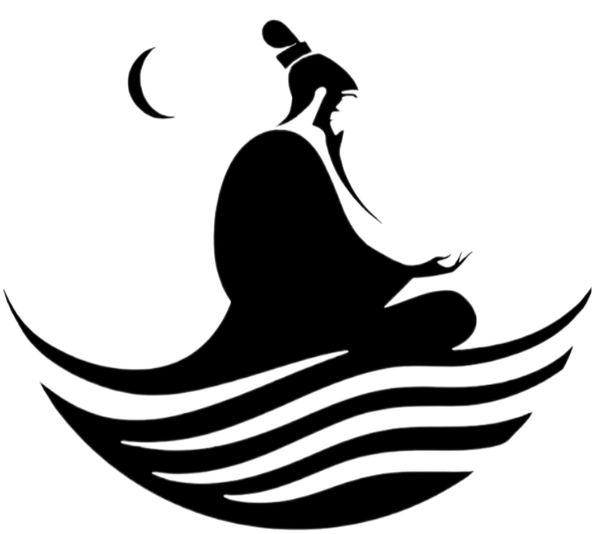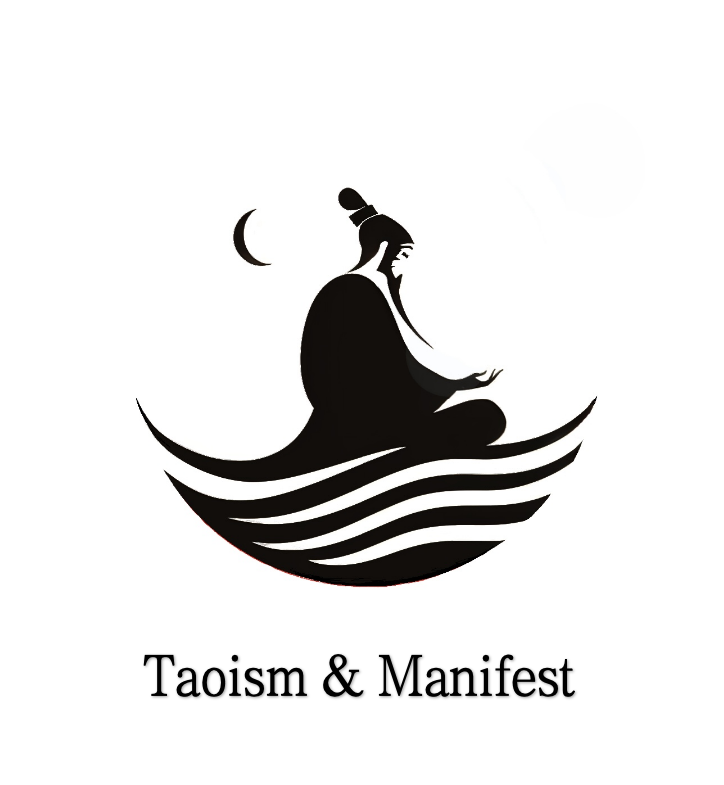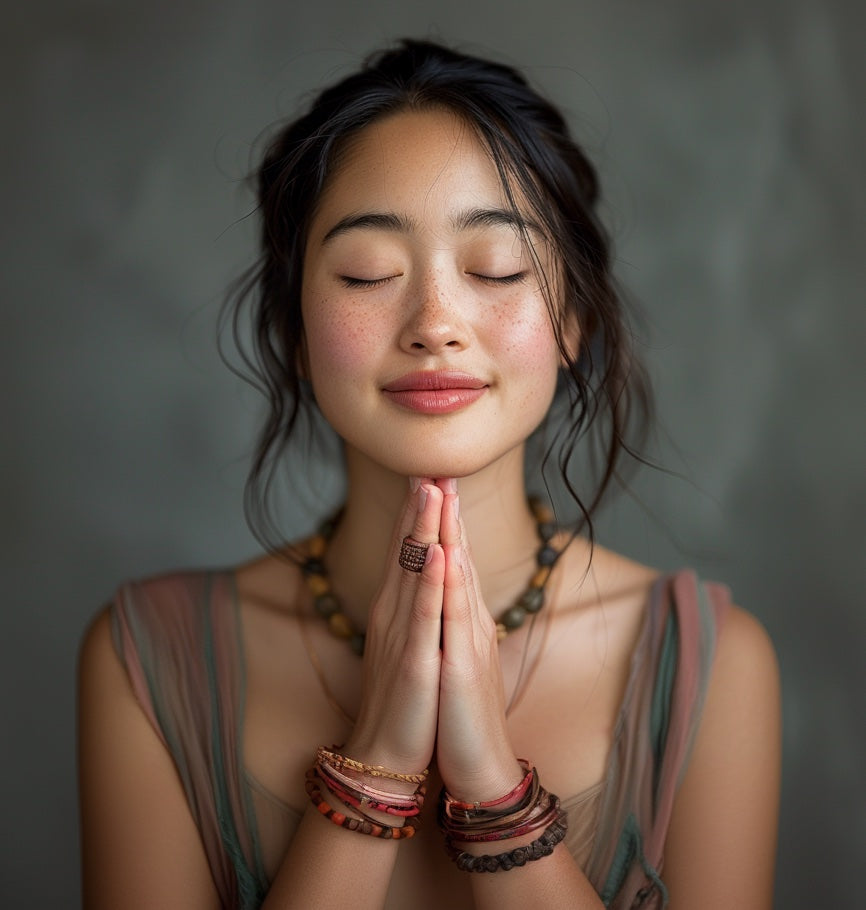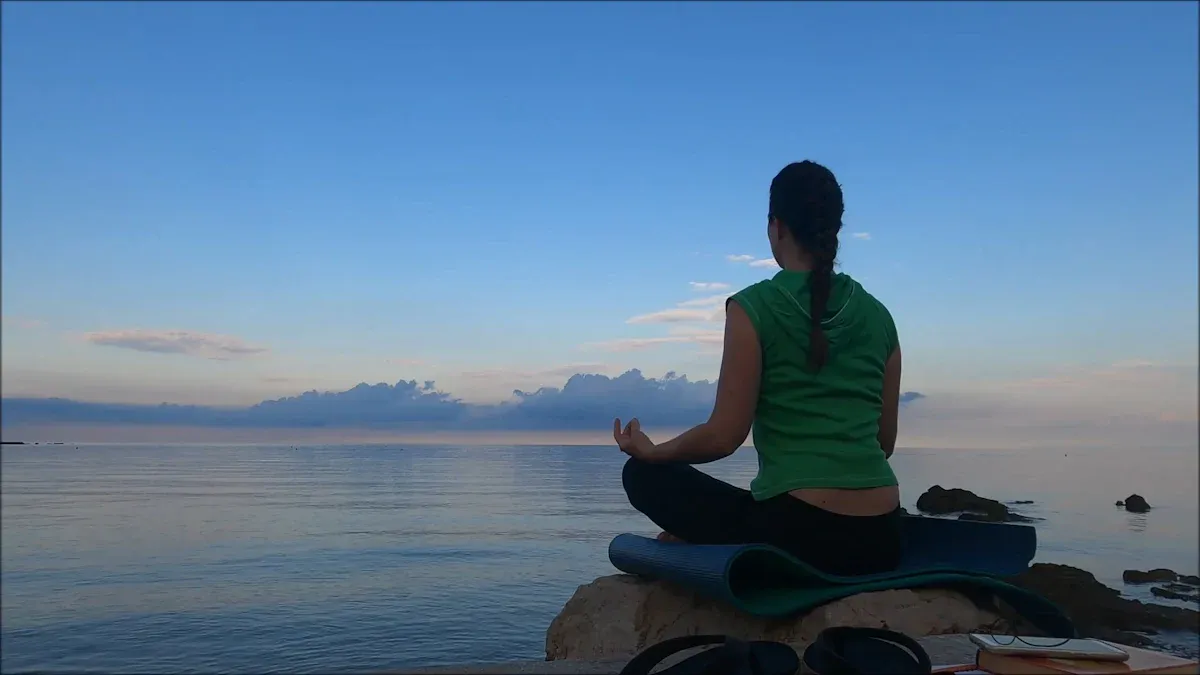
Start your day by learning from Lao Tzu and the Tao Te Ching. Many people use Taoist teachings every morning to feel calm and peaceful inside. These old ideas, like Wu Wei and harmony, help shape how people practice Taoism today. Taoist routines work for everyone. Beginners can try easy breathing and simple moves. People who know more can make their morning habits deeper. You can find calm and peace inside by thinking, writing, and doing Taoist meditation. Be curious each morning and find your way to calm and feeling good.
Key Takeaways
Begin each morning with easy Taoist practices like mindful breathing, gentle movement, or meditation. These help you feel calm for a long time.
Stop trying to control everything and go with the flow of life. This can lower stress and help you find balance. This follows the idea of Wu Wei.
Pay attention to simple things, be thankful, and stay present. This makes room for peace and happiness in your daily life.
Spend time in nature and practice being still. This refreshes your mind and body. It helps you stay calm and think clearly.
Make gentle goals each day to guide what you do. This brings purpose and joy. It helps your day feel more focused and balanced.
Day 1: Wu Wei
Tao Te Ching Verse
“The Tao never acts, yet nothing is left undone.”
— Tao Te Ching, Chapter 37
This verse shows the heart of Wu Wei, a core idea in Taoist philosophy. Wu Wei means “effortless action.” You act in harmony with the Tao, the natural flow of life, instead of forcing things. Taoist thinkers like Laozi and Zhuangzi teach that you find calm by letting go of control and trusting the process. When you stop pushing and start flowing, you discover a deep sense of calm and balance. In daily life, this means you respond to challenges with awareness and flexibility, not with stress or force.
Morning Meditation
Start your morning with a simple meditation to experience Wu Wei. Sit comfortably and close your eyes. Focus on conscious breathing. Feel each breath as it enters and leaves your body. Let your breath flow naturally. Do not try to change it. Notice how your body feels. If thoughts come, let them pass without judgment. This morning meditation helps you practice mindfulness and awareness. You learn to let go of control and allow calm to grow inside you. Many studies show that mindfulness meditation, which uses effortless attention, can reduce anxiety and improve well-being. Practicing conscious breathing each morning sets a calm tone for your day.
Practice Reflection
After your meditation, take a few minutes to write or think about this question:
When did you last try to control something and feel stressed?
How did it feel to let go, even a little?
Taoist practice teaches that letting go of control brings calm and peace. Modern Taoist practitioners often use examples like accepting traffic delays or changes in plans. Instead of fighting what you cannot change, you accept it with awareness. This practice helps you stay calm and balanced, no matter what your morning brings. Each day, as you practice conscious breathing and mindfulness, you build a habit of calm that lasts.
Day 2: Simplicity
Tao Te Ching Verse
“The infant can cry all day and never become hoarse.”
— Tao Te Ching
This verse from the Tao Te Ching shows the beauty of simplicity and natural balance. Taoist wisdom teaches you to live with the innocence and ease of a child. You do not need to chase after power or fill your life with things. Instead, you find balance by letting go of what is not needed. Many scholars say these teachings help you face modern challenges. When you focus on simplicity, you create space for peace and harmony. You learn to trust the Tao and let your true self shine.
Taoist Morning Rituals
Start your morning with a simple Taoist ritual. You can try a gentle Qi Gong movement. Stand with your feet shoulder-width apart. Let your arms hang loose. Slowly raise your arms as you breathe in, then lower them as you breathe out. Move with the rhythm of your breath. This mindful movement helps you connect with your body and the Tao. Qi Gong is a Taoist practice that brings balance and calm. It does not matter how long you practice. Even a few minutes each morning can help you feel more centered. Taoist morning rituals like this support mindfulness and balance in your day.
Practice Reflection
Take a moment after your movement practice to reflect. Journaling can help you explore simplicity in your life. Try writing about this prompt:
“The things I need to make me feel most content are…”
This simple exercise helps you see what truly matters. Research shows that journaling in a calm state can boost your mood and clear your mind. Taoist practice encourages you to focus on what brings balance and peace. When you reflect on simplicity, you often find that less is more. Each morning, let your rituals and mindfulness guide you toward a life of balance and ease.
Day 3: Gratitude
Tao Te Ching Verse
“He who knows that enough is enough will always have enough.”
— Tao Te Ching, Chapter 46
This verse shows why being thankful is important. When you are grateful for what you have, you feel happy and calm. The Tao Te Ching tells you to stop wanting more and enjoy now. Many religions, like Buddhism and Christianity, also teach gratitude and kindness. These ideas help you see that real happiness comes from enjoying simple things and living with the Tao.
Practice
Begin your morning with a gratitude meditation. Sit down and close your eyes. Take a deep breath and smile softly. Think of three things you are thankful for today. They can be small, like your warm bed or birds singing. As you breathe out, picture a smile in your heart. This Inner Smile Meditation helps you feel good inside. You can also write in a gratitude journal. List three things you like about today. Focus on simple and natural things. This matches Taoist ideas of keeping life simple and balanced. Writing and meditating about gratitude helps you see the good in your life. It also helps you start your day in a happy way.
Practice Reflection
After your gratitude practice, take time to think. Ask yourself:
How does being thankful make you feel?
What do you notice in your mind after this meditation?
Studies show that gratitude habits like journaling and meditation help your mood. They lower stress and help you sleep better. These habits also make your friendships stronger and help you feel calm. When you practice gratitude each morning, you become stronger and find peace every day. Let this easy habit lead you to real happiness and harmony with the Tao.
Day 4: Nature

Tao Te Ching Verse
“The highest good is like water. Water gives life to the ten thousand things and does not strive.”
— Tao Te Ching, Chapter 8
This verse shows how the Tao teaches you to live in harmony with nature. Water moves gently, finds its own path, and brings life to everything. Taoist wisdom says you can learn from water by being flexible and humble. You do not need to force things. Instead, you flow with the world around you. Many wellness experts use this idea to show how you can find balance and peace by connecting with nature and others. When you follow the Tao, you see that harmony comes from working with the world, not against it.
Taoist Morning Rituals
Start your morning by spending time in nature. Try a mindful walk outside. Feel the ground under your feet. Listen to the sounds around you. Notice the air on your skin. You can also practice outdoor Qi Gong. Stand tall, breathe deeply, and move your arms slowly like water. These Taoist morning rituals help you connect with the Tao and bring balance to your day. Studies show that mindful movement in nature supports your brain and body health. You feel less stress and more calm. Walking or moving outside helps you stay present and enjoy the moment. Many people find that time in nature each morning makes them feel refreshed and ready for the day.
Practice Reflection
After your morning rituals, take a few minutes to write about your experience. Ask yourself:
How did you feel while connecting with nature this morning?
What did you notice about your thoughts or feelings during your time in nature?
Reflecting on your connection to nature can help you feel more balanced and peaceful. Research shows that spending time in nature and thinking about it can lower stress and help you grow emotionally. You may feel a stronger sense of harmony with yourself and the world. Taoist practice teaches that nature is a teacher. Each morning, let your rituals and movement remind you of your place in the world and the balance you can find by living in harmony with the Tao.
Day 5: Stillness
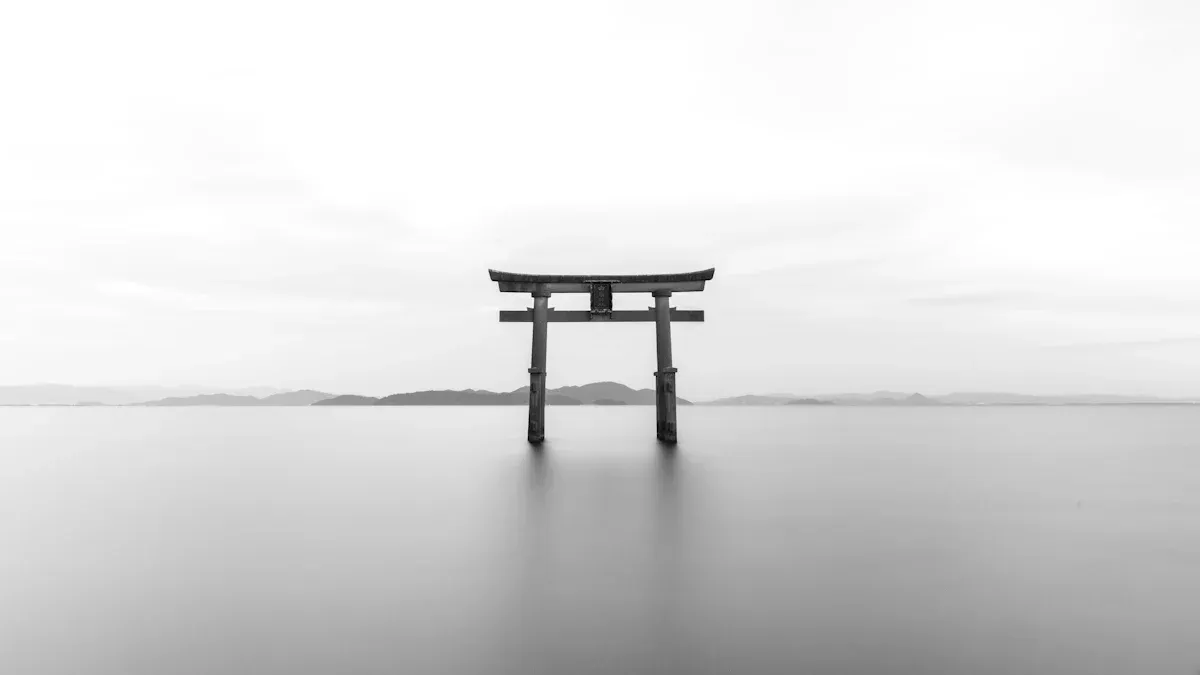
Tao Te Ching Verse
“Heavy is the root of light. Stillness is the ruler of restlessness.”
— Tao Te Ching, Chapter 26
This verse from the Tao Te Ching teaches you that stillness brings strength and balance. In Taoist philosophy, stillness means more than just being quiet. It is a calm state that helps you connect with the Tao and find wisdom. When you stay still, you can see things clearly and act with purpose. Scholars say that stillness in Taoism is not just about stopping. It is about finding harmony between rest and action. You lead by example, show patience, and let things unfold naturally. The Tao values quiet strength, gentle leadership, and the power of yielding.
Stillness aligns you with the Tao and brings wisdom.
Quiet actions and humility show true leadership.
Yielding and flexibility help you stay strong.
Speaking less and embracing calm can overcome stress.
Morning Meditation
Begin your morning with a silent sitting meditation. Find a comfortable seat. Rest your hands on your lap. Close your eyes gently. Take a slow breath in and out. Focus on your breath as it moves in and out of your body. If your mind wanders, notice it and return to your breath. Stay in this quiet space for ten minutes. This morning meditation helps you feel calm and clear. Studies show that silent sitting meditation and breathwork can lower stress, improve sleep, and help you think better. You learn to let go of busy thoughts and enjoy the present moment. This practice is simple and works for everyone, even if you are new to meditation.
Practice Reflection
After your morning meditation, take a few minutes to reflect. You can write or think about these questions:
How did you feel during your meditation?
What did you notice about your thoughts or body?
Where can you add more stillness to your daily routine?
Stillness gives you space to listen to yourself and the world. When you practice stillness each morning, you build a habit of calm that lasts all day. The Tao teaches that true strength comes from quiet moments. Let your morning meditation and reflection help you find balance and peace in your life.
Day 6: Intention
Tao Te Ching Verse
“Intending without intending, acting without acting.”
— Inspired by Tao Te Ching
This verse shows how the tao teaches you to set intention with gentle focus. In Taoist thought, intention rises like a spring—natural and effortless. You do not force your daily purpose. Instead, you let it bubble up from within. Modern Taoist practice encourages you to pay close attention to your inner world. You allow your daily purpose to form gently, without ego or struggle. This way, your actions flow in harmony with the tao. You move through your day with awareness and balance.
Practice
Start your morning with a simple intention-setting ritual. Sit quietly and take a few deep breaths. Place your hand on your heart. Ask yourself, “What is my daily purpose today?” Let the answer come softly. You might want to focus on kindness, learning, or patience. Speak your daily purpose out loud using present-tense words, such as “I am calm” or “I bring joy.” This practice helps your brain focus and prepares you for the day. Research shows that setting intentions in the morning can boost your motivation and help you notice new opportunities. When you connect your daily purpose to your feelings, you build strong habits and feel more joy.
Practice Reflection
After your morning ritual, take a few minutes to write about your experience. Try this prompt:
How does setting a daily purpose change your awareness during the day?
When did you notice your intention guiding your actions?
Taoist practice stands out because it does not push you to control every outcome. You learn to accept change and flow with life. This approach helps you stay balanced and open. As you continue your morning practice, you will see how a gentle daily purpose brings more calm, focus, and happiness into your life.
Day 7: Presence
Tao Te Ching Verse
“The highest good is like water. Water benefits all things and does not compete. It stays in low places that others avoid. In this way, it is close to the Tao.”
— Tao Te Ching, Chapter 8
This verse teaches you to be present and gentle, just like water. The Taoist idea of presence means you notice each moment without judgment. You let go of worries about the past or future. Many mindfulness practices today use this same idea. When you empty your mind and accept life’s flow, you find calm and balance. Taoist teachings show that being present helps you handle stress and enjoy daily life. You learn to move with life’s changes, not against them.
Taoist Morning Rituals
Start your morning with a mindful tea or coffee ritual. Choose your favorite cup and prepare your drink slowly. Notice the sound of water, the smell of tea or coffee, and the warmth in your hands. Sit quietly and take small sips. Focus on the taste and the feeling of each sip. This Taoist ritual helps you slow down and connect with the present. Research shows that mindful tea rituals can lower stress and improve your mood. The act of preparing and drinking tea or coffee brings your attention to the now. You can use this time to practice mindfulness and set a calm tone for your morning. Many Taoist practitioners use simple rituals like this to start their day with peace and clarity.
Practice Reflection
After your morning ritual, take a few minutes to reflect. Ask yourself:
What did you notice during your tea or coffee ritual?
How did it feel to focus on the present moment?
You may find that you feel calmer and more awake. Mindful rituals help you enjoy small moments and build a habit of presence. Taoist wisdom teaches that every morning offers a new chance to practice presence. When you bring mindfulness to your rituals, you create a peaceful start to your day and carry that calm with you.
Integrating Taoist Practice
Adapting Rituals
You can change your daily taoism habits to fit your life. Taoist teachers say to begin with one or two easy rituals. Spend only 5 to 10 minutes on each one. This gentle way keeps you from feeling stressed. When these rituals feel normal, you can add more. You might try mindful meditation, conscious breathing, or gentle moves like Qi Gong. Writing about your daily purpose or spending time in nature also helps you feel calm and balanced.
Tip: Let your rituals fit your day. If your morning is busy, think about your daily purpose while you drink tea or coffee. If you go outside on weekends, use that time for your practice. Flexibility is important in Taoism. You do not need strict plans to feel calm and well.
You can change these habits for work, family, or school. Wu Wei teaches you to go with life’s changes. You can always come back to your daily purpose, even if your plans change. Writing your intentions helps you stay clear and focused. Being in nature helps you feel calm and balanced inside.
Staying Consistent
Doing daily taoism habits brings calm and well-being that lasts. Many people have problems like work stress, too much screen time, or not enough time. You can use Taoist ideas to help you stay on track:
Challenge |
Taoist Solution |
Benefits |
|---|---|---|
Work Stress |
Emptiness Meditation (5-10 min) |
Calmer mind, inner calm |
Digital Overload |
Burning Meditation |
Mental clarity, calm |
Time Pressure |
Mindful Task Completion |
Better focus, balance |
Decision Fatigue |
Wu Wei Reflection |
Clear purpose, calm |
Start with short and regular times for practice. Make some places digital-free so your mind can rest. Trust your gut and let your daily purpose lead you. When you spend time in nature, you get new energy and balance. Each day, your taoist habits help you find calm and purpose. Over time, these habits help you feel close to nature and bring harmony to your life.
You have ways to feel calm and peaceful each morning. Doing Taoist rituals helps you feel close to nature. You also learn to be thankful and find peace inside. Every day, you can feel more calm and happy. If you ever feel stressed, just start with small steps. Experts say you should:
Start with short times to help you keep going.
Be thankful for your work and notice your wins.
Pay attention to simple things, like being outside or eating.
Let your purpose help you, even when you are busy.
Tell others about your journey and help them find calm too. Keep doing these Taoist habits to feel closer to nature and your purpose.
FAQ
How much time do I need each morning?
You only need about 10 to 15 minutes. You can start with less if you want. The most important thing is to practice every day. Even a few minutes can help you feel calm and focused.
Can I do these practices if I am not familiar with Taoism?
Yes! You do not need to know much about Taoism. These morning rituals work for everyone. You can learn as you go. Just stay open and curious.
What if I miss a day?
Missing a day is okay. You can start again the next morning. The goal is to build a habit over time. Every new day gives you another chance to practice.
Do I need special tools or a quiet space?
You do not need special tools. A quiet space helps, but you can practice anywhere. You can sit, stand, or even walk. Just focus on your breath and your intention.
See Also
Key Insights Into Taoism’s Wu Wei Method For Anxiety
